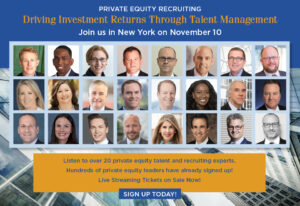Competition for Talent Remains White Hot

August 19, 2021 – The Labor Department reported that 348,000 Americans have filed new claims for state unemployment benefits. This is the lowest level for initial claims since March 14, 2020, when it was 256,000. Economists surveyed by Dow Jones expected to see weekly new claims fall to 365,000. It’s the fourth straight week the figure has declined. The previous week’s level was revised up by 2,000 from 375,000 to 377,000. The four-week moving average was 377,750, a decrease of 19,000 from the previous week’s revised average. This is the lowest level for this average since March 14, 2020 when it was 225,500. The previous week’s average was revised up by 500 from 396,250 to 396,750.
The latest data comes after the Bureau of Labor Statistics said earlier this month that the country added 943,000 jobs last month — more than expected as the labor market mounted a strong recovery in July after lackluster results in the spring.
Filings for unemployment benefits have traditionally been seen as a real-time measure of the job market’s health. But their reliability has deteriorated during the pandemic. In many states, the weekly figures have been inflated by fraud and by multiple filings from unemployed Americans as they navigate bureaucratic hurdles to try to obtain benefits, according to the Associated Press. Those complications help explain why the pace of applications remains comparatively high.
During the week, 47 states reported 4,877,668 continued weekly claims for Pandemic Unemployment Assistance benefits and 47 states reported 3,786,488 continued claims for Pandemic Emergency Unemployment Compensation benefits. The highest insured unemployment rates were in Puerto Rico (4.9), California (3.8), Illinois (3.6), District of Columbia (3.2), New York (3.2), Connecticut (3.1), Rhode Island (3.1), New Jersey (3.0), the Virgin Islands (3.0) and Nevada (2.8). The largest increases in initial claims were in Virginia (+4,197), California (+3,267), Maryland (+1,738), Oregon (+1,602) and Illinois (+1,430), while the largest decreases were in Michigan (-4,093), New York (-2,921), Georgia (-2,623), Indiana (-2,577) and Missouri (-2,401).
Search Expert Weighs In
Steve Hochberg is the founder and CEO of San Diego, CA- based Caliber Associates. Mr. Hochberg focuses on recruiting CEOs, board members, C-level and strategic teams for emerging life science companies and global biopharmaceutical companies. He has assembled a small team of highly experienced, results driven search professionals. Prior to his search career, he held strategic human resources roles with Rhône-Poulenc Rorer, FMC Corp. and Shell Oil Co.
Mr. Hochberg recently sat down with Hunt Scanlon Media to discuss the pandemic, hiring, and how his firm has adjusted to working with clients and candidates during the post pandemic era. Following are excerpts from that discussion.

Steve, many are optimistic about a return to normalcy by the end of the summer. What are your thoughts about the recovery?
From a business standpoint, the life science sector has been extremely robust with search activity since the first quarter of 2021. This level of activity has primarily been fueled by a tremendous influx of capital at virtually all levels. Many new companies have been started, venture funding and private equity financings have been robust, and the number of initial public offerings and secondary offerings has driven expansion at all levels within the life science sector. Further activity is the direct result of many life science companies pursuing initiatives to address COVID-19 and the threat of variant spread. Research efforts on both the vaccine and therapeutic fronts have been significant creating enormous demand for talent in clinical development, regulatory affairs, operations and manufacturing
What expectations do you have for the search industry for the rest of the year ahead?
I anticipate that the level of activity will continue at the current pace for the remainder of the year and well into the first quarter provided that the current spread of the Delta variant does not result in substantial closings. If businesses can continue their operations, the need for key talent in the areas mentioned above will be significant. There continues to be a much higher demand for talent at the C-level and the pressures will be to identify and attract those key leaders during this red-hot competition. Continued pressure on compensation packages and increases in the value of equity will continue to require creative solution and strategy to close searches.
“Research efforts on both the vaccine and therapeutic fronts have been significant creating enormous demand for talent in clinical development, regulatory affairs, operation, and manufacturing.”
What sectors are strongest right now?
Within the life science sector in pharmaceuticals and biotech there remains great strength in the functional areas of clinical research and development. This includes chief medical officers with specialty areas of specific therapeutic focus. Additionally, significant activity is robust in manufacturing/ operations particularly in the manufacturer of biologics and vaccines. Continued strength in the areas of business/ commercial development and regulatory affairs. Finally, there is a robust level of activity in board of director searches due to the high volume of IPOs in the sector and need to construct independent boards.
Has your firm adjusted in how it serves clients?
Our firm has continued to remain flexible in our approach to service our clients’ needs. Specifically, the amount of direct interaction on a face-to-face basis has diminished significantly and a much greater reliance on Zoom has created greater efficiencies in the search process. The flexibility and availability of candidates and clients has shortened the timelines of search completion. Clearly, we have expanded our discussions to include nights, evenings and weekends to best accommodate our clients’ needs. We are very cognizant of the challenge clients have faced in addressing their business needs and we have demonstrated a great level of sensitivity to the remote working environment.
Related: Executive Search Firms Adapting to the New Normal
Contributed by Scott A. Scanlon, Editor-in-Chief; Dale M. Zupsansky, Managing Editor; and Stephen Sawicki, Managing Editor – Hunt Scanlon Media












